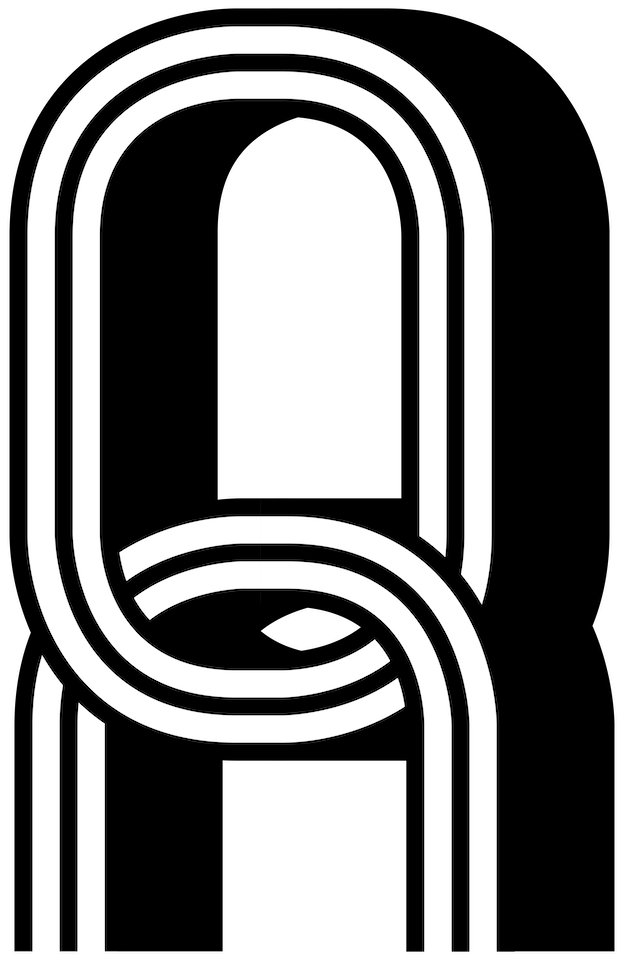Return of the Airpoets
In early 2023, I was browsing a record store in Collingwood. In the background, music was playing. At first, I didn’t pay it much mind. But, without my being conscious of it, it began seeping into my head, manifesting itself as a ghostly synthesis of electronics, beats, deep bass, trumpet, all multi-tracked, a dense collage of sound but at the same time teeming with space.
The guy at the desk clued me in: it was from Adam Halliwell’s then forthcoming album Freedom Dance, specifically track 4 ‘Cygon Dance’, an extended duo with trumpeter Reuben Lewis. Now, I knew Adam, mostly from his work with Mildlife, And I knew Reuben, whose psychedelic, shape-shifting ensemble I Hold the Lion’s Paw I’d followed from the get-go.
Cygon Dance’ was the sole track on Adam’s album to feature Reuben, the rest highlighted his multi-instrumentalism: a seamless forty-minutes woven from bass, flute, guitar, percussion, electronics. But I recall thinking: these two – Adam and Reuben – they should make an entire album together. Turns out, lo and behold, they did, between lockdowns (remember them?), and here it is: Return of the Airpoets.
First things first. There’s a lot of space in this music. It’s right there at the outset, on opener ‘Murder in the Tiki Lounge’. Eerie electronics, plucked strings, clangs, buzz and static. There’s a loping momentum, off-kilter, before Reuben’s trumpet, played with Harmon mute, steps in, delicate as glass. It could be a movie soundtrack, maybe something bad is about to happen. Meandering, drifting, but dramatic too, murky and dark, full of foreboding.
The piece segues into ‘The Verdict (Trial of the Airpoets)’, a track that hinges on Adam’s time-worn bass, earth to Reuben’s trumpet, which feints and parries, dream-eyed, as if floating through inner-space. There’s as much silence as sound here, there’s bedrock and air, sudden shifts, sub-atomic grooves.
‘Digital Water Chorus’ ushers in a discordant note, straight out of the gate, a barrage of caterwauling trumpets, effects, and heavy percussion, generating a dose of sci-fi chaos. There’s a solid pulse, an anxious heartbeat, followed by a slow onset of entropy, a swirling whirligig running out of battery. ‘Stygian Vistas’, which follows, heads toward darker terrain, marimbas and tiny percussive sounds vying for attention, almost spooky, awash with menace, disquiet. You can hear the footsteps in the empty corridor, the echo of lost souls. ‘As the Errant Mind Sleeps’ journeys into uncharted waters, its preternatural sounds, percussive and synth-driven, conjuring a world of hallucinations, phantasms.
Adam and Reuben indulge their love of film noir, murder mysteries, trash horror. ‘Geriatric Confine’ might be the soundtrack to a giallo movie, with its spine-chilling intro, slow-burn drums (courtesy of guest Ronny Ferella). Lewis’s trumpet, when it enters, elicits shadowed, rain-spattered streets, neon lights. But there are touches of Miles too, circa 1971, dark and mysterious, full of reverb and echo, repeated phrases. Ferella’s drums return on ‘Brown’s Final Words’, free-form, overlaid with a systematic patter of cymbals, muffled trumpet.
‘You’ve come this far’, the album’s centrepiece and penultimate track, revisits the territory of ‘Cygon Dance’, a ten-minute smoldering exploration of mood, its trance-like passages played out over fragmented percussive patterns, little sounds. Lewis’s trumpet inches forward, circling all-the-while, its slow-moving momentum edging to the outer rim, into deep space. ‘Farewell (Words Left Unsaid)’ is just that, a brief coda that returns this music to its beginnings, its electronic sheen, cavernous bass, eddying trumpet, bathed in stillness, nudging silence.
These nine tracks flow together as a unified suite, their shadowy presence stitched from fractured narratives: imaginary crimes, murders, dreams, the unspoken. At the same time, you can detect the artists’ meticulous attention to sonic detail, feel the undercurrents, the complex layering. This music has been distilled, winnowed, from extended improv sessions, with the artists – as producers – zeroing in on offcuts, shards, and splinters, seamlessly patching together fragments in post-production to construct intricately layered sound collages, taking a leaf out of Tao Macero’s book, building from the ground up.
Return of the Airpoets continues a conversation begun with ‘Cygon Dance’, a dialogue that stems from a shared love and respect for Jon Hassell’s Fourth World music. Sonic pioneer and adventurer, Hassell’s futuristic vision advocated possible musics, stressing plurality and multiplicity. Faithful to his vision, Adam and Reuben, as trailblazers rather than imitators, delight in boundless musical possibilities, adopting Hassell’s futurism as stock-in-trade, making it their own.
Who are these airpoets? Their mystifying trial suggests the travails of Joseph K, sentenced for unspecified crimes. But I prefer to see them as fugitives escaped from Robert Bolaño’s novel, Savage Detectives. In Bolaño’s book, poet Juan Garcia Madero is granted admission to the shadowy group of poets, the Visceral Realists, whose movement has no clear aims, and whose members “walked backward . . . gazing at a point in the distance, but moving away from it, walking straight toward the unknown.” Like the visceral poets, these airpoets, Reuben Lewis and Adam Halliwell, set their sights on a point on the distant horizon, setting off without map or compass, drawing nearer and moving away, towards the unknown.
Credits:
Reuben Lewis - trumpet, synthesisers & pedals
Adam Halliwell - guitar, bass guitar, synthesisers & percussion
Ronny Ferella - drums (4, 6 & 7)
Composed by Reuben Lewis and Adam Halliwell
Produced by Reuben Lewis and Adam Halliwell
Engineered by Reuben Lewis
Mixed by Reuben Lewis
Mastered by Helmut Erler
Liner notes by Des Cowley
Insert weave by Martha Sexton
Bronze weave hieroglyphs designed by Jack Hewitt
Cover photograph by Guy Vinciguerra
Artist and insert photography by Anna Denton
Design by Thomas Rennie
Reuben and Adam extend their respects and acknowledge that this music was made on the unceded lands of the Wurundjeri Woi-Wurrung peoples of the Kulin Nation.
In memory of Jon Hassell
Printed in Germany by R.A.N.D Muzik
Lacquer cut by Helmut Erler
Distributed by Word & Sound
